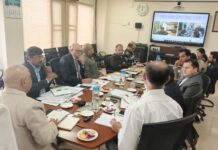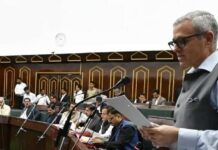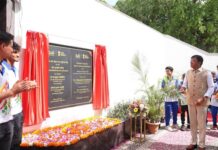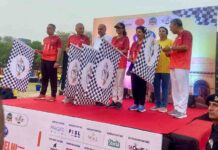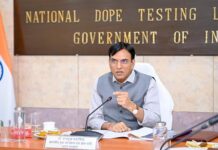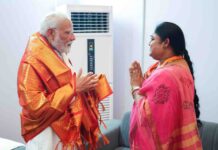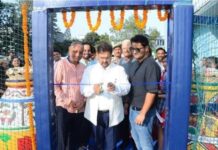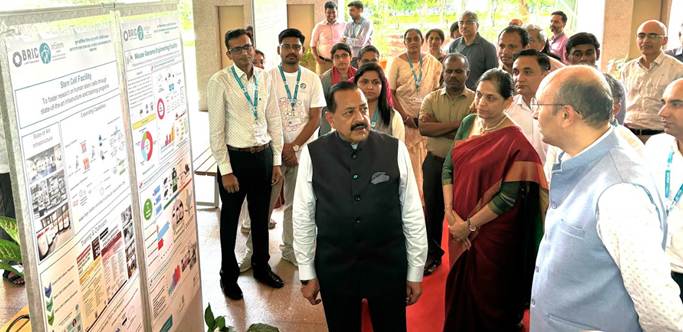APRIL 24: Union Minister of State (Independent Charge) for Science and Technology; Earth Sciences and Minister of State for PMO, Department of Atomic Energy, Department of Space, Personnel, Public Grievances and Pensions, Dr. Jitendra Singh inspected the various facilities at BRIC-inStem and reviewed ongoing clinical trials in collaboration with premier medical institutes and hospitals, including the landmark first-in-human gene therapy trial for Haemophilia conducted with CMC Vellore. Calling it a “milestone in India’s scientific journey,” the Minister hailed the institute’s contributions to preventive and regenerative healthcare.
During his visit, Dr. Jitendra Singh underscored the strategic importance of biotechnology in shaping India’s future economy and public health infrastructure. “This is not just about science—it’s about nation-building,” he said, commending the Department of Biotechnology’s (DBT) recent successes and its emergence from relative obscurity into national relevance.
India’s biotechnology sector has seen an extraordinary leap, growing 16-fold in the past decade to reach $165.7 billion in 2024, with a vision to touch $300 billion by 2030. The Minister credited this growth to enabling policy reforms, including the recently approved BIO-E3 Policy that aims to boost economy, employment, and environment through biotechnology. “We now have over 10,000 biotech startups compared to just 50 a decade ago,” he pointed out.
Dr. Jitendra Singh praised the creation of the Biotechnology Research and Innovation Council (BRIC) that unified 14 autonomous institutions under one umbrella. “BRIC-inStem is at the cutting edge of fundamental and translational science,” he said, highlighting innovations like the germicidal anti-viral mask during the COVID-19 pandemic and the ‘Kisan Kavach’ that protects farmers from neurotoxic pesticides.
A highlight of the visit was BRIC-inStem’s Biosafety Level III laboratory, a key national facility for studying high-risk pathogens under India’s One Health Mission. “The recent pandemic taught us that we must always be prepared. Facilities like this will help us stay a step ahead,” Dr. Jitendra Singh stated.
The Minister also praised the newly launched Centre for Research Application and Training in Embryology (CReATE), which addresses birth defects and infertility by advancing developmental biology research. “With about 3 to 4 percent of babies born with some form of defect, this centre is vital for improving maternal and neonatal health outcomes,” he said.
Calling for greater collaboration between scientific and medical institutions, he suggested that BRIC-inStem explore MD-PhD programs, integrate more with clinical research, and enhance visibility through coordinated communication strategies. “What’s being done here should echo across the country—not for publicity, but because the nation needs it,” he said.
Dr. Jitendra Singh concluded by noting that India’s economy of the future would be bio-driven, with institutions like BRIC-inStem serving as torchbearers of this transformation. “As Mark Twain said, the economy is too serious a subject to be left to economists alone. Biotechnology is not just a science anymore—it is a pillar of our national strategy.”




